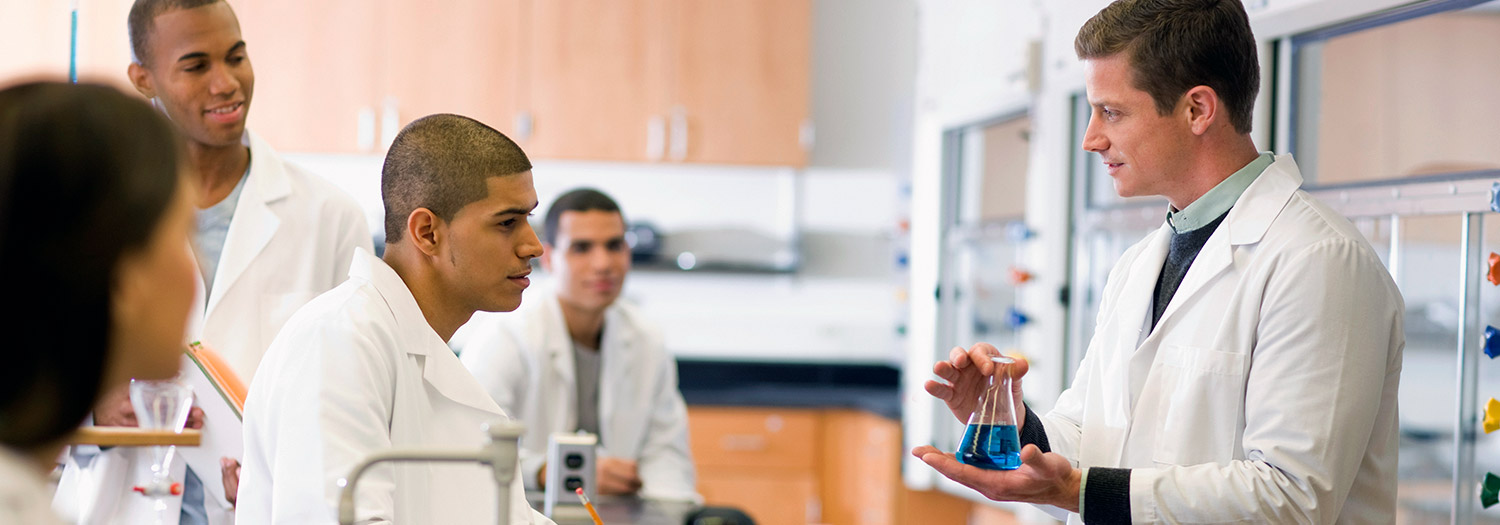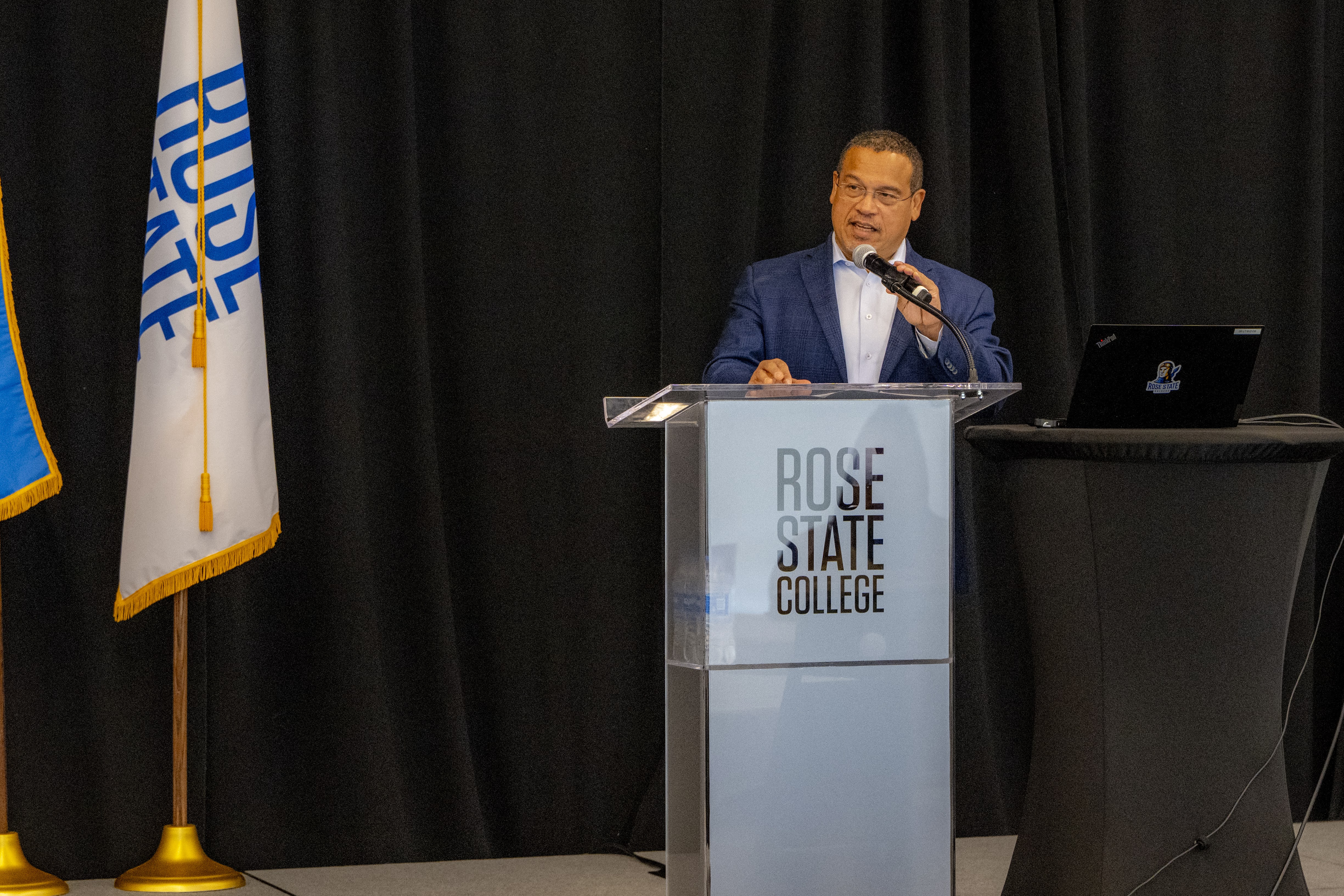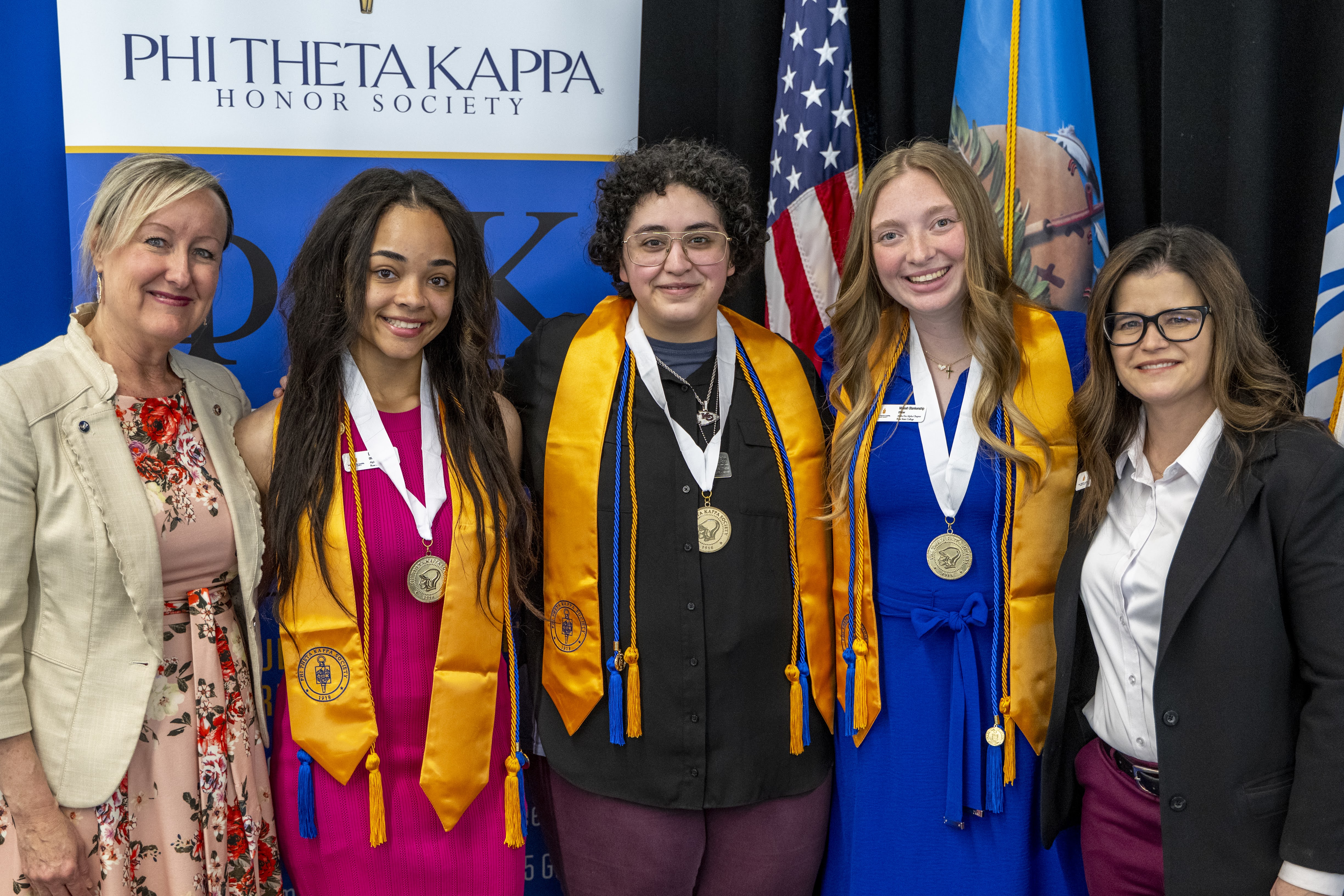The goal of the Aviation Management Associate in Science Degree is to provide students a foundation in accounting, management, communication, aviation history, aviation safety, private piloting requirements, and small unmanned aircraft systems (sUAS) operations necessary to contribute to the aerospace industry or continue their education in a professional pilot program or through pursuing their bachelor's degree at a 4-year college or university.
Degree Requirements
GENERAL EDUCATION REQUIREMENTS (34 hours)
English Composition (6 hours)
- ENGL 1113 English Composition I
- ENGL 1213 English Composition II
U.S. History/U.S. Government (6 hours)
- HIST 1483 U.S. History to 1877 OR HIST 1493 U.S. History Since 1877
- POLS 1113 American Federal Government
Sciences (7 hours minimum - one must include lab)
Students must earn a “C” or better in these courses to be eligible for graduation.
- METR 1123 Introduction to Meteorology
- METR 1121 Introduction to Meteorology Laboratory
Humanities (6 hours)
Mathematics (6 hours)
Students must earn a “C” or better in these courses to be eligible for graduation.
- MATH 1483 Functions and Modelling OR MATH 1513 College Algebra
- MATH 1743 Calculus I for Business
Liberal Arts (3 hours)
Recommended course: PHIL 2113 Introduction to Logic & Critical Thinking
PROGRAM REQUIREMENTS (25 hours)
Students must earn a “C” or better in these courses to be eligible for graduation.
- ACCT 2103 Financial Accounting
- AVI 1014 Private Pilot Ground School
- AVI 1313 Introduction to UAS Operations
- AVI 2123 Aviation History
- AVI 2613 Aviation Safety
- ECON 2303 Principles of Microeconomics
- ECON 2403 Principles of Macroeconomics
- MGMT 2103 Principles of Management
PROGRAM ELECTIVES (3 hours)
Students must earn a “C” or better in these courses to be eligible for graduation.
- Any AVI course in addition to AVI 1014, AVI 1313, AVI 2123, and AVI 2613
- ACCT 1123 College Accounting Procedures
- ACCT 2203 Managerial Accounting
- BA 1303 Introduction to Business
- CIT 1103 Introduction to Computers
- ECON 2843 Elements of Statistics
- ENGR 1213 Introduction to Engineering Practices
- ENGR 2013 Engineering Graphics & Design
- GIS 1113 Introduction to Geographic Information Systems
- MATH 2083 Introduction to Statistics for Engineering & Science
- MCOM 1213 Introduction to Communication
- Any MGMT course in addition to MGMT 2103
Upon completion, graduates will be prepared to:
- Apply mathematics, science, and applied sciences to aviation-related disciplines
- Work effectively on multidisciplinary and diverse teams
- Communicate effectively, using both written and oral communication skills
- Use the techniques, skills, and modern technology necessary for professional practice
- Evaluate aviation safety and the impact of human factors on safety
- Complete the FAA Private Pilot written knowledge exam
- Complete the FAA Unmanned Aircraft General (UAG) exam and operate a small, unmanned aircraft system (sUAS) as a Remote Pilot (FAA Part 107)
- Transfer to a baccalaureate degree program in Aviation Management, Business, or a Professional Pilot Program
Upon completion, graduates will be prepared to:
- Apply mathematics, science, and applied sciences to aviation-related disciplines
- Work effectively on multidisciplinary and diverse teams
- Communicate effectively, using both written and oral communication skills
- Use the techniques, skills, and modern technology necessary for professional practice
- Evaluate aviation safety and the impact of human factors on safety
- Complete the FAA Private Pilot written knowledge exam
- Complete the FAA Unmanned Aircraft General (UAG) exam and operate a small, unmanned aircraft system (sUAS) as a Remote Pilot (FAA Part 107)
- Transfer to a baccalaureate degree program in Aviation Management, Business, or a Professional Pilot Program




